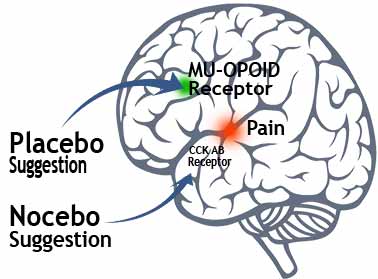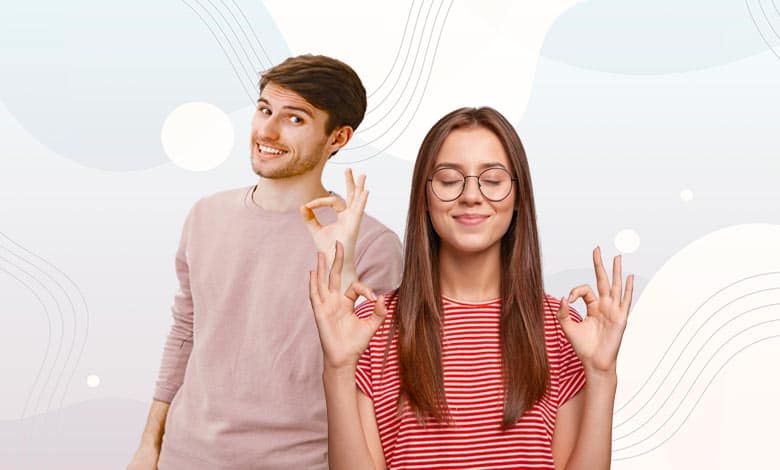Hello, insightful explorers and curious minds! Have you ever been amazed by the power of the mind over the body? We’re going on an intriguing journey into one of the most fascinating phenomena in medical science – the Placebo Effect. This remarkable effect highlights how our expectations, beliefs, and environment can dramatically influence our health without real treatment.
Suppose you think that the medicine is more expensive or harder to get or something like that. The placebo effects will be greater, and it turns out. The power of the mind or expectation makes you feel better. One of the most common theories is that the placebo effect depends on expectations. If a person expects the medication to do something, the body’s chemistry can likely cause effects similar to what an actual medication may have caused.
Experts also say there is a relationship between how strongly a person expects to have results and whether results occur. The stronger the feeling, the more likely positive health benefits will occur. The interaction between a patient and a healthcare provider may have a profound effect.
Sit back, relax, and prepare to be amazed as we delve into the mysterious world of placebos, where the line between perception and reality blurs, and discover how powerful our minds truly are. Let’s uncover the secrets behind the placebo effect and its profound impact on health and healing!
What is the Placebo Effect?
The name that comes from Placebo is Latin for I shall please. It glorifies the power that everything’s going to be alright. It’s your mental perception and your body’s physiological reaction to that anticipation. That activates immune responses and limits the secretion of damaging stress hormones. The opposite incident is the nocebo effect.
Placebo is an inert ingredient used instead of a treatment. This effect occurs in many conditions whereby this inert ingredient will cause improvement. It will reduce pain symptoms and sometimes reduce depressive symptoms.
The placebo effect is all about the mind mechanism and belief system. Research on the placebo effect has focused on the relationship between mind and body. In some cases, this purely psychological effect can heal people completely. There have been endless studies proving that the placebo effect works. In some clinical trials, the placebo pills outperformed the genuine medication.
How does the placebo effect work in the brain?
Studies have linked the placebo effect to the brain’s natural production of pain-relieving endorphins. The expectation of feeling better causes the brain’s endorphin-receiving opioid receptors to fire up, activating its pain relief system. These are the receptors that opiate, and other painkillers activate to relieve pain.

Interestingly, another study found that advanced Alzheimer’s patients experienced less pain relief from analgesics and placebos. The disease had damaged their opioid receptors. They couldn’t benefit from the anticipation of treatment, real or fake. But the power of thought can work against you.
Some studies show that actual physical changes occur with the placebo effect. For example, some studies have shown an increase in the body’s production of endorphins, one of the body’s pain relievers.
- Opioid receptors are found in the brain, spinal cord, and other organs. When medications attach themselves to these receptors, they can reduce pain perception.
The effect of placebos has been long researched, and these procedures have many pros. The body has powerful natural recuperative abilities; a placebo can help facilitate this. When the human mind believes it is being given pain medication, it releases many endorphins. When providing patients with placebos instead has the same effect. The body is using more natural remedies to reduce pain.
Placebo effect psychology
What is the placebo response? Simply put, a placebo response is an improvement in a condition attributable to the expectation of benefit. The treatment’s physical properties would not be expected to directly affect the disease process. It is an expectation or a psychological effect, which is the most important thing to remember.
Placebos act as a psychological boost, so a person’s positive attitude may be necessary for recovery. However, placebos you use all around the world for varying diseases. The placebo effect is a beneficial effect that is produced by a placebo. It is a medication or a procedure prescribed for psychological benefit rather than physiological. It can’t be attributed to the placebo’s properties and must be down to a person’s beliefs in that treatment.
It’s what happens when you take a medication or treatment you believe will help you. It has no proven therapeutic effect. But it still makes you feel better. It’s a scarcely understood part of medicine about getting actual results with fake input.
- Scientists have known since the 1700s that placebos can sometimes provide effective treatment. But exactly how it works is not well understood. We see that a placebo can be such an effective medical head-fake that federal law requires that double-blind placebo tests be used in the trials of any new drugs in the US.
To become FDA-approved, a new drug must be at its corresponding placebo in at least two clinical trials. The problem with prescribing placebos is that it is considered unethical to let patients believe they’re being given proper medication when they’re not.
Placebo effect statistics
Placebo effects can result from mere contact with doctors or even diagnosis of a problem. Simple attention from a respected medical professional alleviates anxiety. It renders the prescription of these placebos moot and doesn’t benefit their health. There is also the chance that a patient, to appease a doctor, might report benefit when no benefit has occurred. Placebos are used for various things, from depression to anxiety to weight loss. There have recently been studies on using placebos for vaccines.
A survey in New Zealand was conducted five years ago. It aims to determine how accepting patients were of the use of placebos. A questionnaire survey was administered to 211 general practice patients in socio-economically divergent areas of Auckland. This questionnaire obtained a self-report of willingness to accept various clinical uses of placebo’s desire to participate in placebo-controlled clinical trials with reasons for and beliefs about the placebo effect.
One of the problems with placebos is ethics. Many people believe giving people placebos when given proper medication is unethical.
However, guideline 11 of the international ethical guidelines for biomedical research states that it is acceptable to use a placebo if the use of that placebo would not add any risk of serious or irreversible harm.
The New Zealand survey concluded that many patients except placebos suggest that the patients tolerated significant issues with placebo use that appeared to be deception or lack of informed consent.
Aaron Carroll researched the effects of the placebo effect when 180 patients who had osteoarthritis in the knee were randomly assigned to one of three groups with consent. The first group had a standard arthroscopic procedure. The second head lavage and the third were given a sham surgery where an incision was given and sewn again.
Carroll said that the results were stunning. He said those with the proper procedures did no better than those with fake surgery. The results were all in people’s heads. It was determined that placebos were between thirty to fifty percent cheaper than real medications.
Benefits of the placebo effect
Placebo has been proven to alleviate depression, anxiety, pain, and insomnia. They elevate mood and sharpen thinking. Also, they work from the belief that the drug you’re using is natural and from a subconscious trust in doctors. There’s some classic Pavlovian conditioning at work here.
The placebo effect extends further than medicine. Scientists believe using placebo effects could help regulate the economy instead of spending billions to implement complex economic policies. The single most effective placebo effect was during the European debt crisis.
Finding ways to distinguish between the placebo effect and its effect may improve the treatment and lower drug testing costs. More studies may also lead to using the placebo’s power in treating diseases. Placebos increase the number of endorphins released in the brain by attaching to the opioid receptors. So, the body is using more natural remedies to reduce pain.
The placebo effect in New Zealand medicine allows the development of drugs to help patients. It can also lower the cost of medications, making it more economically beneficial. The effects of a placebo are far less dangerous than some of the medicines produced.
So, by using these trials, medicine is advancing and creating safer medications. Using placebos in medical practice can benefit the social, economic, and even environmental aspects. Overall, the benefits of the placebo effect far outweigh any risks.
Through this journey, we’ve seen how the mind’s belief in treatment can lead to real, tangible improvements in health, challenging our understanding of medicine and healing. It’s a testament to the incredible power of the human mind and its capacity to influence the body in unexpected ways.
We hope this exploration has not only enlightened you but also inspired a deeper appreciation for the complex interplay between the mind and body. Thank you for joining us on this thought-provoking adventure. Until our next exploration into the wonders of science and psychology, keep questioning, keep marveling, and remember – sometimes, believing is the first step to healing. Stay curious and empowered, knowing that your mind is an extraordinary healer!
References:
Arnstein P, Broglio K, Wuhrman E, Kean MB. “Use of placebos in pain management.” Pain Manag Nurs (Position Statement of the American Society for Pain Management Nursing).
Gottlieb. “The FDA Wants You for Sham Surgery.” Wall Street Journal.
Lanotte M, Lopiano. “Expectation enhances autonomic responses to stimulation of the human subthalamic limbic region.” Brain, Behavior, and Immunity.
“Placebo Effect.” American Cancer Society.
Quattrone, Aldo; Barbagallo, Gaetano; Cerasa, “Neurobiology of placebo effect in Parkinson’s disease: What we have learned and where we are going.”
Table of Contents
